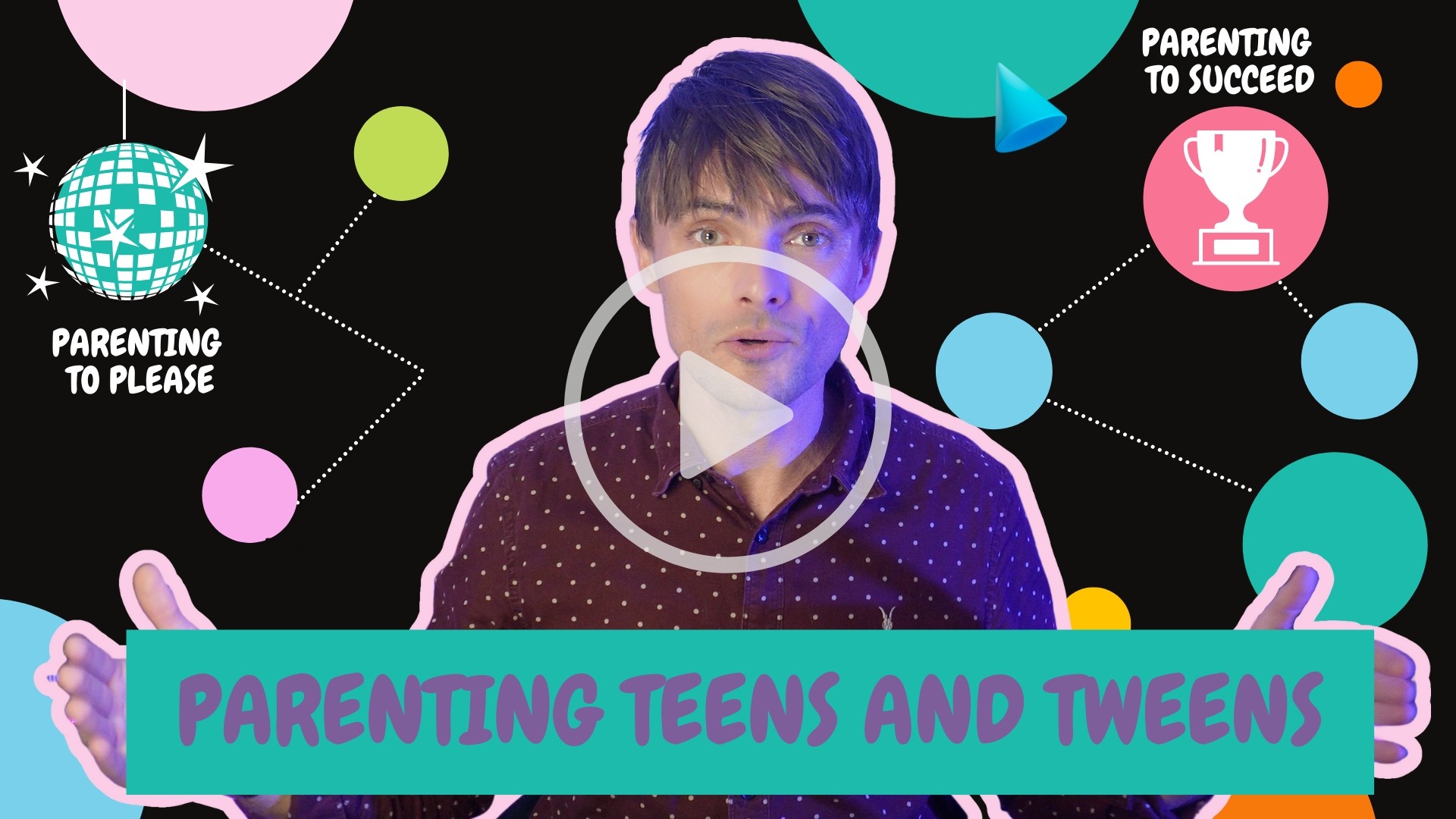MY PEOPLE PATTERNS'
WHAT TYPE OF TEEN DO I HAVE?
My People Patterns aims to make the teen years less turbulent with tips, education, training and more. We help people grow great relationships and believe healthy, happy families create resilient young adults.
Learn how your parenting style can impact your family here:
WHAT IS YOUR PARENTING STYLE?


THE TYRANT TEEN
You answered questions that indicate that as a parent, you are
- Feeling like you are being taken hostage with demands
- Walking on eggshells around explosive mood swings
- Dealing with frequent school refusal
- Noticing a lack of motivation at school.

The way that the questions were answered indicates that your teen might be struggling to control their emotions and, as such, are able to make demands and usually get their way. If this is true, or somewhat true for your teen, they might be in the Tyrant Teen category, which refers to their ability to get what they want most of the time.
It’s quite normal for teenagers to have difficulty in controlling their feelings; they are dealing with an overwhelming surge in hormones, and the parts of the brain responsible for are still developing parts of their brain responsible for regulating feelings. What distinguishes a Tyrant Teen is the way they use their emotional outbursts to dictate who does what and when. When toddlers have a meltdown and protest about going to school, it’s much easier to pick them up and put them in the car… this is not possible with Tyrant Teenagers who are having a more sophisticated version of a temper tantrum.
Parents of the Tyrant Teen can feel threatened physically or intimidated emotionally when such eruptions occur and often feel trapped and at a loss as to how to reclaim their power.
This is a very tricky family dynamic, and while it’s important to get your teenager into therapy to help with their mood swings and underlying issues, family therapy is also going to be very helpful. Family therapy should be able to provide some advice on how to set limits and hold boundaries and will give you further insight into relationship dynamics that might benefit from some help.
Make sure you're subscribed to our newsletter or our YouTube channel for more information on living with the Tyrant Teen and how to help them with their emotions.

#1 TAKE THE
QUIZ
Take the quiz and sign up to receive our weekly emails on parenting teens and tweens, and growing great relationships.

#2 BUY THE
BOOK
Buy the 'm.y.s.e.l.f' Workbook & Journal for your teen this holiday season and set them up to thrive in 2023

#3 GET THE FREE PARENT COURSE
Sign up for the FORTified relationship course - find the link inside the 'm.y.s.e.l.f' journal when you buy it.

THE TIMID TEEN
You answered questions that indicate that your teen
- Might put a lot of pressure on themselves to succeed academically
- Social anxiety or difficulty in making new friends
- Will complain of anxiety or illness to avoid school
- Is able to get their own way with one or both parents, often pulling on heart-strings
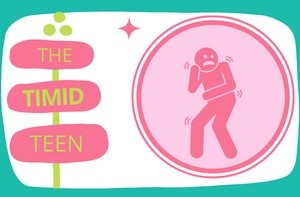
The way you answered the questions may indicate that your teen is living with some anxiety. While teens like this may not all be shy or ‘timid’, they may have some social anxiety or anxiety about participating in new things. They might prefer to have a regular schedule, be quite punctual or be upset if things don’t go according to plan, this can be seen as perfectionism or control, both of which are ways to manage anxiety.
Teens today have a lot to be anxious about; they are bombarded with media in ways that our generation did not have to handle and are dealing with a return to reality after two years of a pandemic. Anxiety is part of being human, but the Timid Teen might need some extra support or tools to self-soothe to work through their anxious thinking.
Children are exquisitely sensitive to their parent’s anxiety and will often have big reactions to any conscious or unconscious anxiety they experience in interactions with their caregivers. As a result, helping a teen with anxiety could include family therapy from a family systems therapist.
Sign up to our mailing list below to find out more about the five types of teens and how to help support them

#1 TAKE THE
QUIZ
Take the quiz and sign up to receive our email course on parenting teens and tweens.

#2 BUY THE
BOOK
Buy the 'm.y.s.e.l.f' Workbook & Journal for your teen this holiday season and set them up to thrive in 2023

#3 GET THE FREE PARENT COURSE
Sign up to the FORTified relationship course - find out how inside the 'm.y.s.e.l.f' journal.

THE 'TOO TIRED' TEEN
You answered questions that indicate that your teen
- May have some signs of depression or anxiety
- Has a preference to isolate or play video games rather than deal with challenging or difficult situations
- Occasionally / often refuses to go to school that may or may not be linked to…
- Has some unexplained illnesses that have no medical causes, which result in time off from school.
It should be noted that if your teen is sleeping excessively, you should rule out a medical condition, the descriptions that follow do not account for physiological problems.
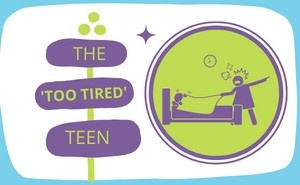
The way that the questions were answered indicates that your teen might be struggling with motivation, isolation, video game use, and some school refusal. We call them the ‘Too Tired’ Teen as they appear to be struggling with finding the motivation to get through school or apply themselves to academics.
Most teens struggle with feelings of self-doubt and insecurity as they change mentally and physically, and some parents may be alarmed at the changes that occur around puberty. The ‘Too Tired’ Teen, however, might be struggling with more than just changes in their body and could be struggling with feelings of depression. Often teens who fall into this category lack the skills and tools to cope with complicated and stressful situations that come up in life and retreat to the comfort of their family.
Be on the lookout for:
- Avoidance behaviors - refusing to interview for jobs or attend school regularly, avoidance of social situations, staying in bed.
- ‘Agoraphobic’ behaviors- not leaving the house, not going places for fear of panic. Agoraphobia needs to be diagnosed by a mental health professional.
- Difficulty in getting up in the morning.
- Refusing to participate equally in family or household chores. Not getting up on time in the morning
- Not participating in any chores
- Not getting a job
- Inconsistent attendance in class
Helping a teenager like this requires a delicate touch, as there are often feelings of deep-rooted shame within the teen. There are also usually complicated family dynamics that support the ‘Too Tired’ Teen, so a family systems therapist might be a helpful consideration.

#1 TAKE THE
QUIZ
Take the quiz and sign up to receive our email course on parenting teens and tweens.

#2 BUY THE
BOOK
Buy the 'm.y.s.e.l.f' Workbook & Journal for your teen this holiday season and set them up to thrive in 2023

#3 GET THE FREE PARENT COURSE
Sign up to the FORTified relationship course - find out how inside the 'm.y.s.e.l.f' journal.

THE TURBULENT TEEN
ou answered questions that indicate that your teen
- Breaks rules or pushes excessively against boundaries
- Lacks motivation or attendance at school.
- Has a friend group that is potentially ‘trouble’ or not a good influence.
- Frequent truancy or skipping classes
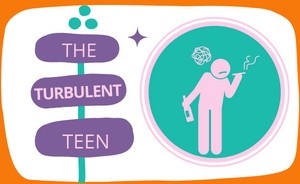
The way that the questions were answered indicates that your teen might be in the turbulent teen category. Teens who break rules, have no interest in school, and hang with a crown of friends who might not be the best influence could be seen as being the ‘rebellious’ type.
Not all aspects of rebellious teens are negative; there are plenty of leaders and celebrities who are adults today that were more free-spirited in their youth.
Bradley Cooper - was arrested at age 15 for underage drinking
Ryan Reynolds was caught putting fireworks in his neighbor's mailboxes
Drew Barrymore was very public with her substance use at 12 and 13.
Today, these celebrities are very much aware of the stress they caused their parents and were able to, over time, straighten out and become incredibly successful. The Turbulent teen is rebelling against some inner, or external conflict and will often just need space and time before coming back to center.
If your child is the angry, rebellious type, there is the potential they are at risk for substance use and abuse, breaking rules and the law, and getting into trouble with peers or strangers. There could be a cause for concern depending on their age and the degree to which their behaviors are impacting others and their future. If you think your teen fits this profile, I highly recommend seeking more support in the form of a therapist; although your teen will probably reject this idea, it’s still worthwhile seeking support for yourself. A psychotherapist will be able to provide some advice on how to set limits and hold boundaries, and if you are anxious or worried about your teen, help you manage your anxiety.
Sign up for our mailing list to recieve more ideas on parenting teens and information on understanding teenagers.

#1 TAKE THE
QUIZ
Take the quiz and sign up to receive our email course on parenting teens and tweens.

#2 BUY THE
BOOK
Workbook & Journal for your teen this holiday season and set them up to thrive in 2023

#3 GET THE PARENT COURSE
Sign up to the FORTified relationship course - find out how inside the 'm.y.s.e.l.f' journal.

THE REPUTABLE TEEN
You answered questions that indicate that your teen
- Rarely pushes at boundaries or breaks rules occasionally
- Is open to trying new things and new experiences
- Does not seem to be avoiding school or homework
- They respect authority and seem to follow the rules- mainly.
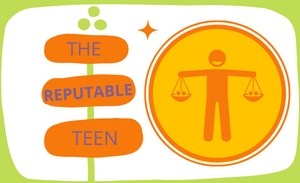
Your teen or tween seems to be in a fairly healthy stage of development and is showing normal teenage behaviors. These behaviors include occasional angry outbursts, pushing at or exploring limits and boundaries and sudden concern over social dynamics. (TOP TIP: the fear of social exclusion is excruciating for adolescents as they continue to develop their identity through peers).
Teens are at risk for anxiety, depression, substance use and more - so please be on the lookout for the signs and symptoms:
- Lack of motivation and purpose
- A sudden drop in grades or doing poorly in school or at work
- If you suspect substance use
- Dramatic changes in moods or personality.
- Change in friend groups or shift towards unhealthy relationships
- Self-imposed social isolation
- Poor self-care
- Device reliance
- Increase in conflict.

#1 TAKE THE
QUIZ
Take the quiz and sign up to receive our email course on parenting teens and tweens.

#2 BUY THE
BOOK
Workbook & Journal for your teen this holiday season and set them up to thrive in 2023

#3 GET THE PARENT COURSE
Sign up to the FORTified relationship course - find out how inside the 'm.y.s.e.l.f' journal.

HAPPY TEENS HAVE HEALTHY FAMILIES
START YOUR FAMILY SYSTEMS JOURNEY HERE
My People Patterns is a Family Systems oriented educational hub. Family Systems Theory believes that we are all part of a complicated spiders web of relationships, and a change in one person can change the entire family. Learn how you can impact your teen, your family, and all your relationships by signing up for our newsletter.
Join Our Mailing List
Start your family systems learning journey by signing up to our email list for parenting tips, teenager facts, and online courses.





